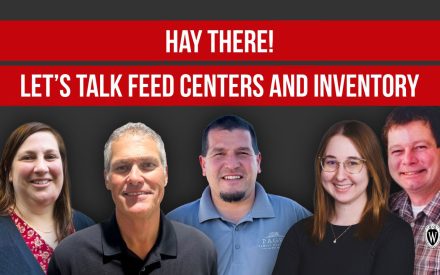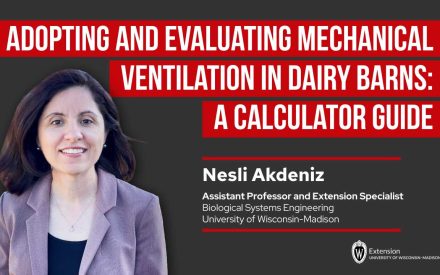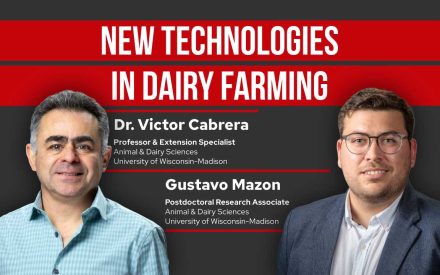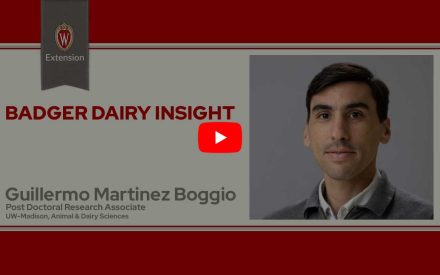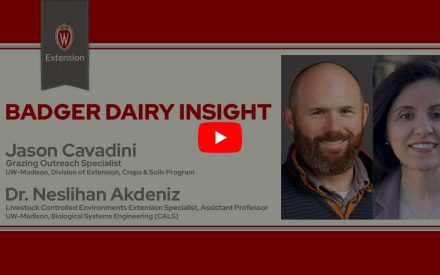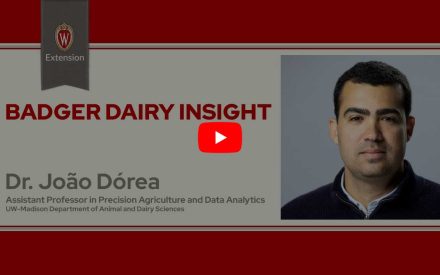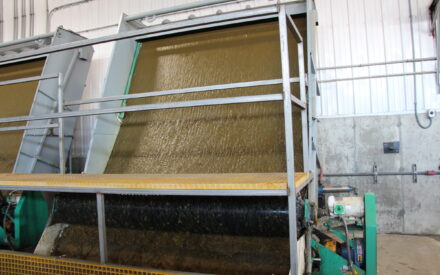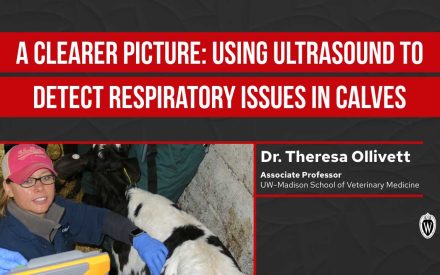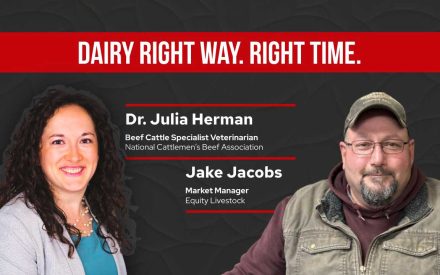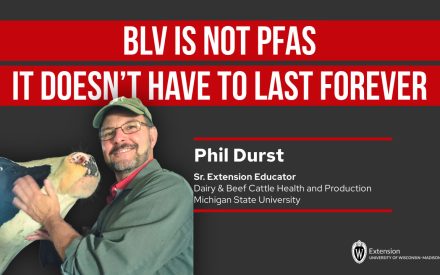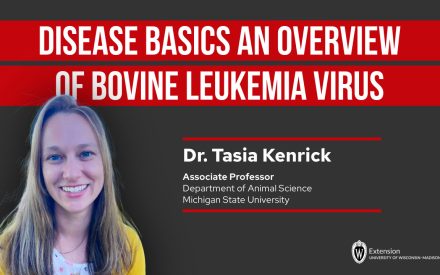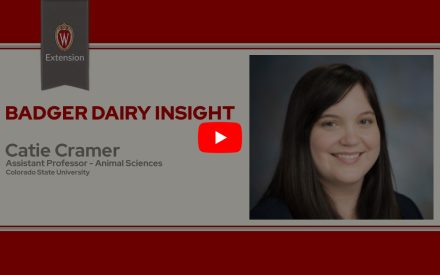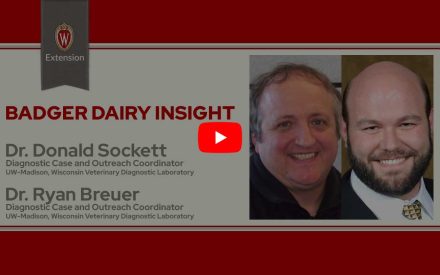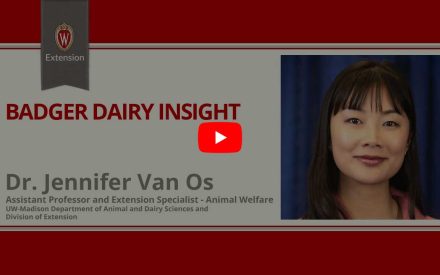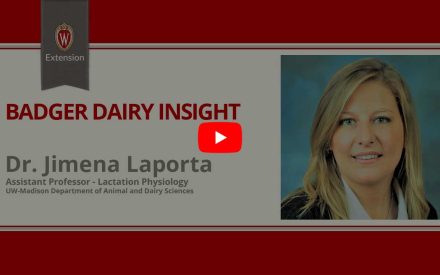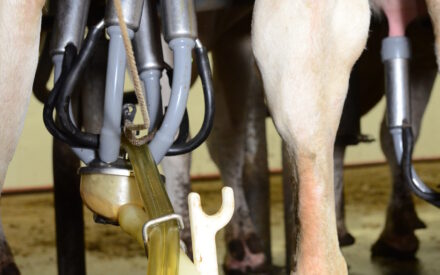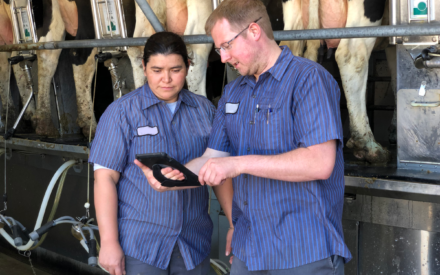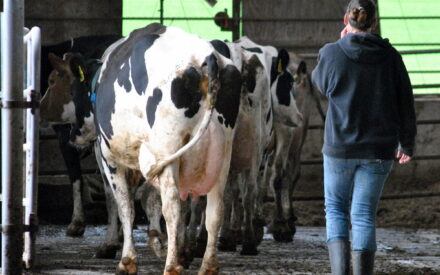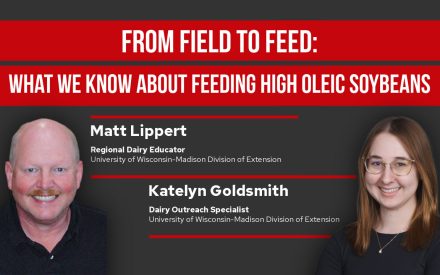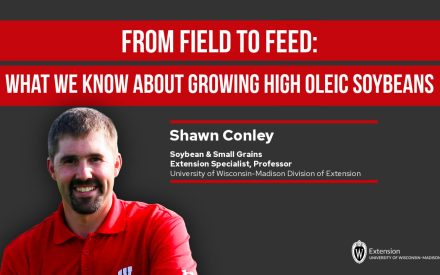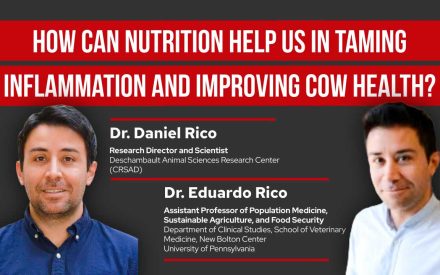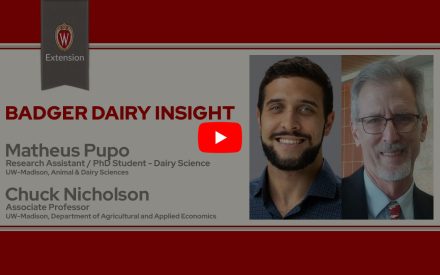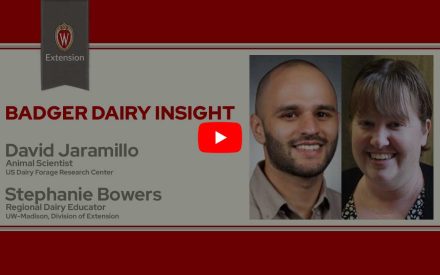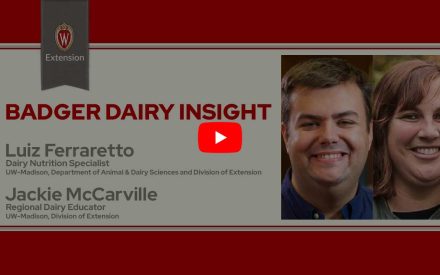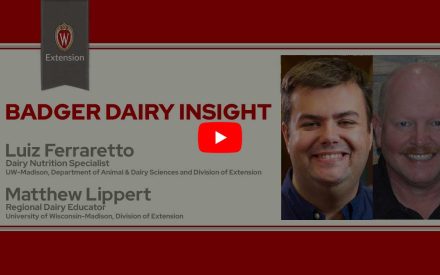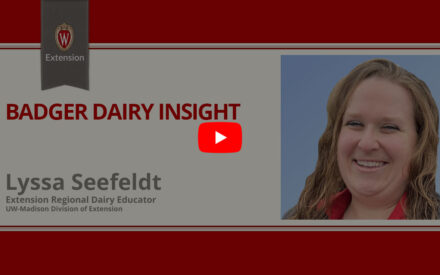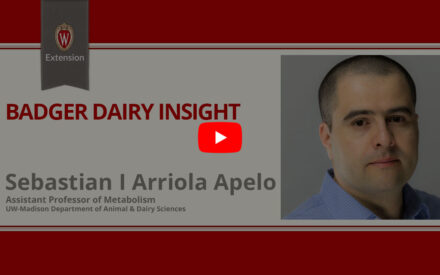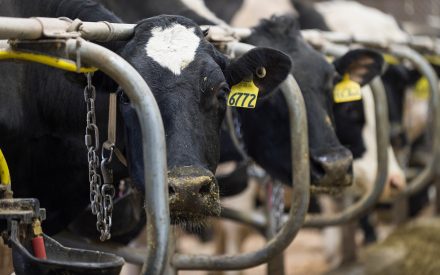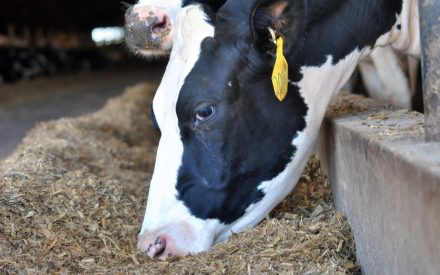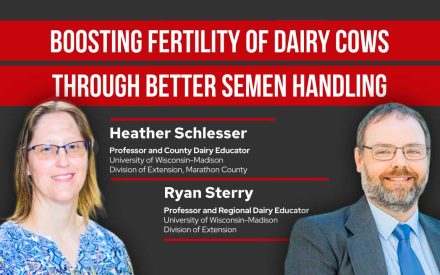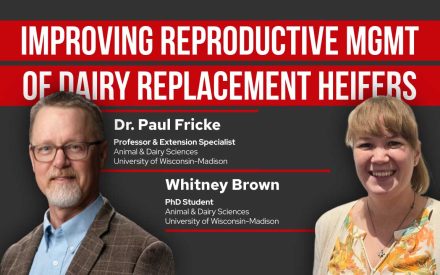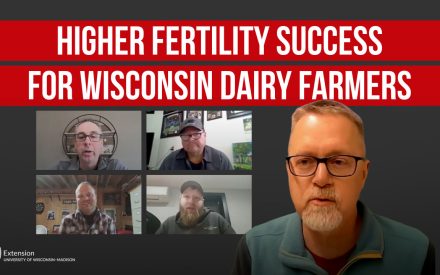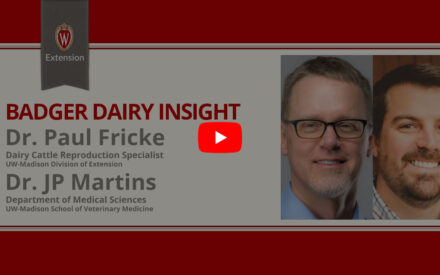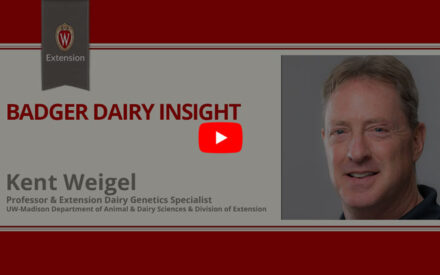Badger Dairy Insight

Badger Dairy Insight is a webinar series to provide the latest research-based dairy information to improve animal welfare, breeding and genetic selection, automation and modernization, and nutritional decisions for producers, dairy workers and managers, ag professionals, and educators.
Join the University of Wisconsin-Madison’s Dairy Program for the Badger Dairy Insight webinars! These happen on the third Tuesday of each month from 11am-12pm (central).
Our webinars happen every month. You’ll hear from local Dairy Program Educators and UW Specialists about the latest dairy topics. It’s a great chance to learn and ask questions!
The webinars are free, Register Here.
Upcoming Webinar Dates
Join the discussion
Badger Dairy Insight happens on the 3rd Tuesday of every month from 11am to 12pm CST.
Upcoming Webinars
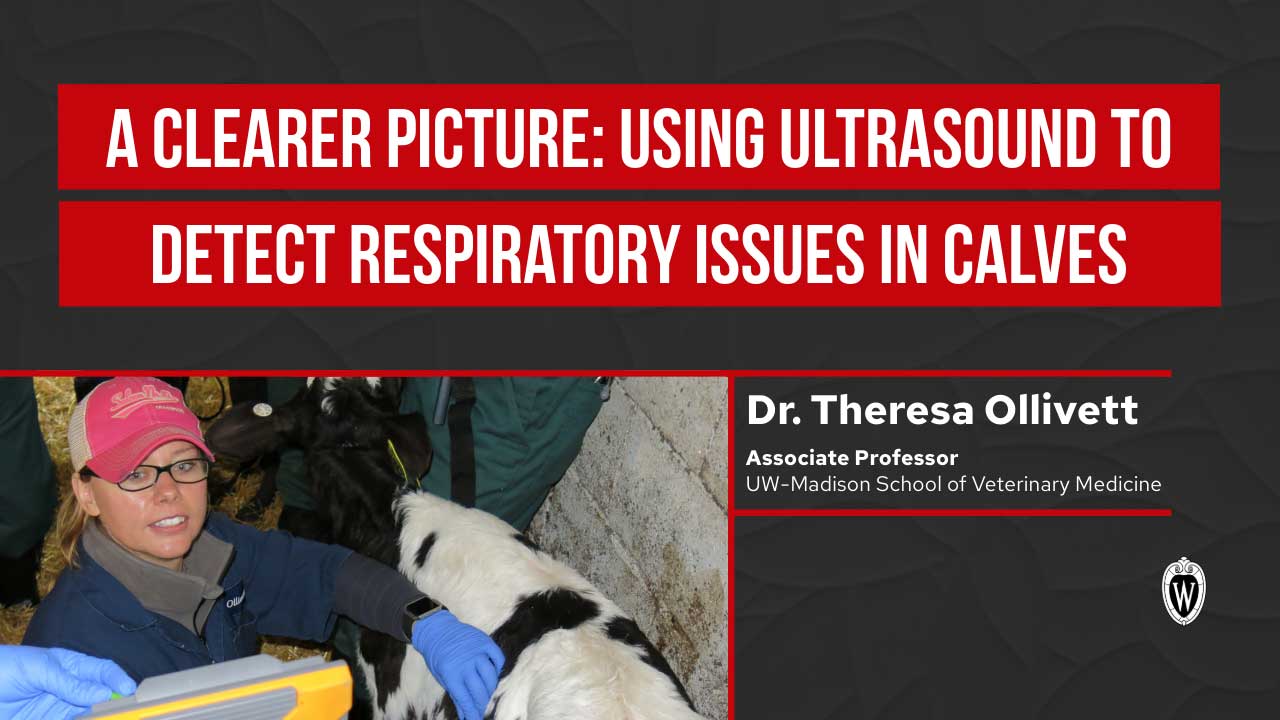
February 17, 2026
A Clearer Picture: Using Ultrasound to Detect Respiratory Issues in Calves
TOPIC: Animal Welfare
Dr. Theresa Ollivett, Associate Professor at the University of Wisconsin–Madison School of Veterinary Medicine, will dive into the hidden challenges of respiratory disease in young dairy calves. On-farm lung ultrasounds reveal that pneumonia often lurks beneath the surface—even after treatment—impacting calf growth, welfare, and profitability. In this session, Dr. Ollivett will discuss the critical questions producers and veterinarians should be asking and demonstrate how lung ultrasound can provide answers. She’ll share practical applications for identifying risk factors, detecting problems early, monitoring treatment effectiveness, and tracking disease trends to improve herd health and performance.
Dr. Theresa Ollivett (bio) ↗️
Associate Professor
UW–Madison School of Veterinary Medicine
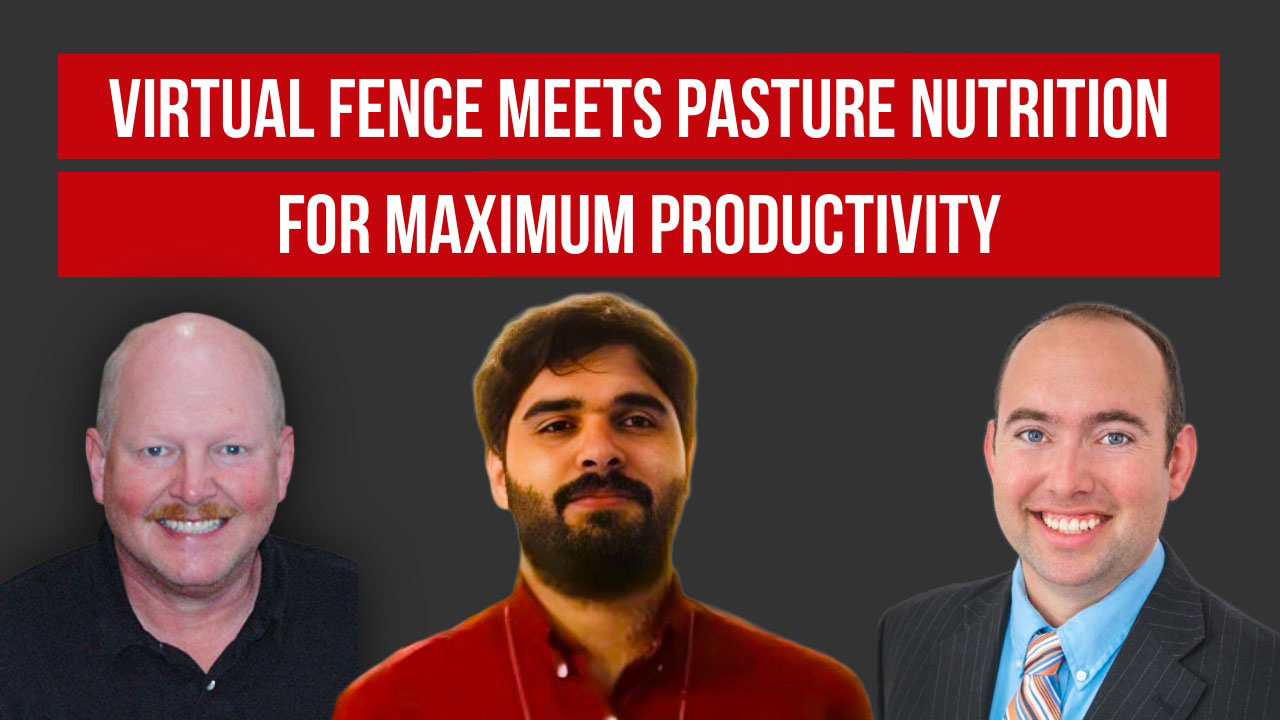
March 17, 2026
Virtual Fence Meets Pasture Nutrition for Maximum Productivity
TOPIC: Nutrition
Well‑managed pastures can deliver highly digestible, protein‑rich forage. Pasture alone rarely provides a perfectly balanced diet, especially for high‑producing dairy cows. What you choose to supplement with can dramatically influence milk yield, components, body condition, and even reproductive performance. Supplementation isn’t just “extra feed”-it’s how you correct the nutritional gaps that pasture creates.
Matthew Lippert (bio) ↗️
Dairy Educator
University of Wisconsin-Madison, Division of Extension
Derek Orth (bio) ↗️
Farmer
Orthridge Jerseys – Fennimore, WI
Carlos Henrique Paiva Camisa Nova (bio) ↗️
University of Wisconsin-Madison, Animal & Dairy Sciences

Badger Dairy Insight: ARCHIVES
Discover our comprehensive collection of past webinars on dairy farming topics. Our archive covers essential areas such as emerging technologies, herd health and welfare, nutrition and reproduction. Each webinar is hosted by UW-Madison, Division of Extension educators and leading experts, providing valuable insights and practical tips to enhance your dairy farming operations.


